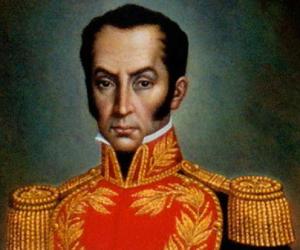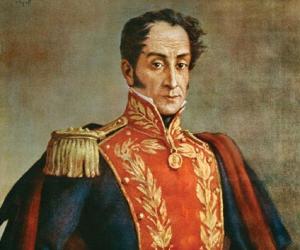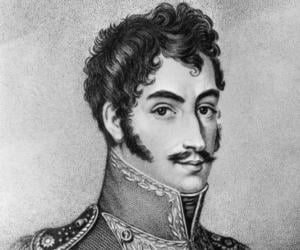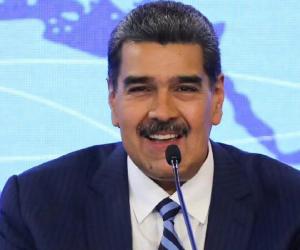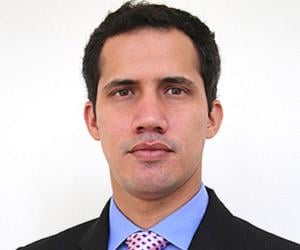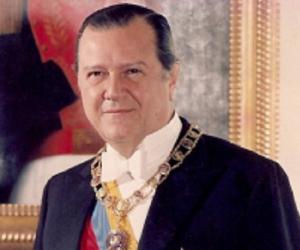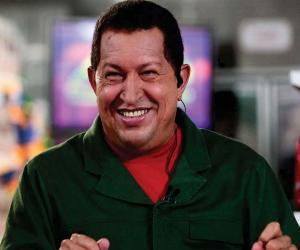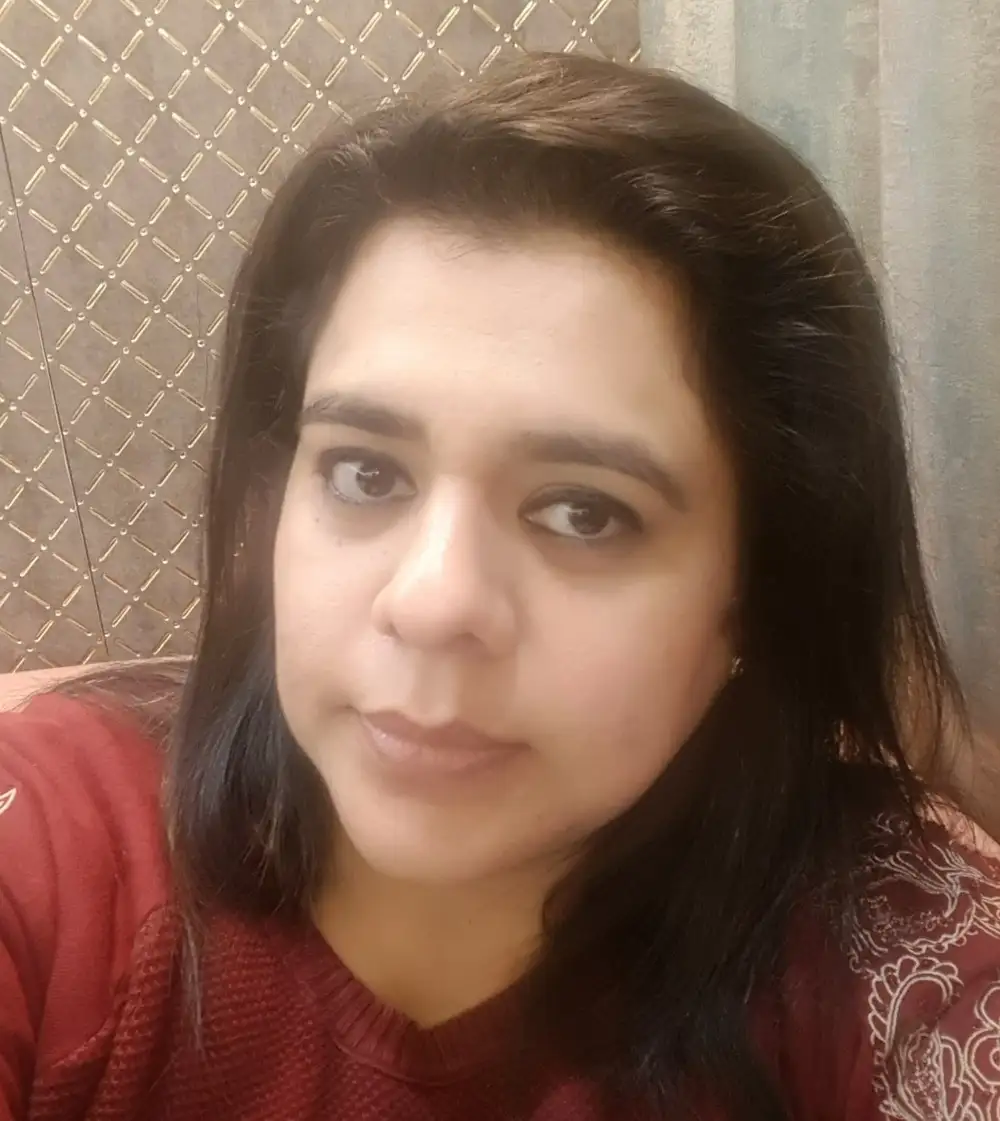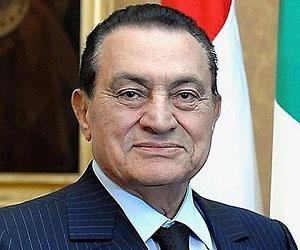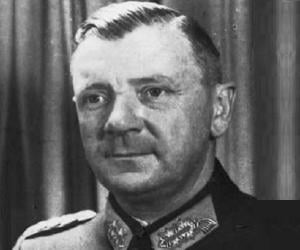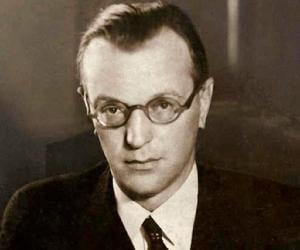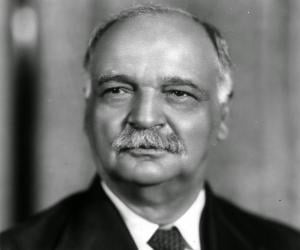Childhood & Early Life
Simon Jose Antonio de la Santisma Trinidad Bolivar y Palacios Ponte y Blanco was born on July 24, 1783, into a wealthy family in Caracas, Captaincy General of Venezuela (now the Bolivarian Republic of Venezuela).
A large portion of the family’s wealth came from the estates and the mines they owned including sugar plantations, silver, gold and copper mines.
Doña María de la Concepción Palacios y Blanco was his mother while Coronel Don Juan Vicente Bolívar y Ponte was his father. He had two older sisters and a brother: María Antonia, Juana, and Juan Vicente.
Due to certain circumstances, Simon's parents entrusted him to the care of family's slave la negra Hipolita. Bolivar, however, returned to his parents after a few years.
Tragedy struck Simon as his father died when he was just two and a half years old and his mother also passed away when he was around nine years old.
Young Simon was placed under the custody of an instructor but this did not work and he returned back home. Thereafter, he received private lessons from some renowned and learned teachers including Don Simon
His nurse Hipolita took care of him and Don Simon taught him swimming and horse riding, along with human rights, politics, history, and sociology.
At the age of 14, he entered the military academy, ‘Milicias de Veraguas’, where he fervently studied military strategy tactics that would help him in his battles in later life.
Simon witnessed the coronation of Napoleon in Paris in 1804 and was so impressed by the event that he started thinking of doing something for the liberation of the people of his native place.
Continue Reading Below
Career & Later Life
Simon Bolivar returned to Venezuela in 1807. Venezuela achieved de facto independence on April 19, 1810, when the Supreme Junta of Caracas established their rule and deposed colonial administrators.
He along with a few notable Venezuelans persuaded Francisco de Miranda to return to his native land to take up the republican cause. They welcomed Miranda in 1811, and Bolivar was promoted to the rank of colonel and made commandant of Puerto Cabello in 1812.
During the war, Bolivar lost control of San Felipe Fort along with its ammunition stores on June 30, 1812, to the royalist forces and abandoned his post and retreated to his estate in San Mateo.
Seeing the republican cause as lost, Miranda too signed a capitulation with Monteverde on July 25, 1812. Thereafter, Bolívar along with other revolutionary officers, termed Miranda's actions as treasonous and arrested and handed Miranda over to the Spanish Royal Army.
For his services to the royalist cause, Bolívar was granted a passport and he left for Curaçao on August 27, 1812. In 1813, he was given a military command in Tunja, New Granada (modern day Colombia).
In 1812, he wrote the first of his many stirring political manifestos and backed a political system in which the aristocrats played an important role. He began to contend for the liberty of Venezuela as the main step in fashioning an entire landmass of independent states.
Under his command, he and his followers invaded Spanish strongholds in Venezuela in 1813, which marked the beginning of the ‘Admirable Campaign’ and resulted in the formation of the Venezuelan Second Republic, later the same year. Bolivar was officially endorsed as ‘El Libertador’ (The Liberator).
A rebellion caused by Jose Tomas Boves, a Spanish commander, in 1814 and the fall of the Venezuelan republic, caused Bolivar to return to New Granada, where he directed a force for the United Provinces. The following year, however, he fled to Jamaica, where he was left without support. He then fled to Haiti, where he grew close to Alexandre Petion who agreed to help him.
In 1816, with Alexandre’s help, he returned to Venezuela and their forces seized Angostura after beating the counter-attack of Miguel de la Torre. Bolivar first decided to combat for the liberation of New Granada, proposing later to combine the independence of Venezuela.
Continue Reading Below
In 1819, Bolivar had a stunning victory at the Battle of Boyaca, which ensured that Colombia gained its freedom. The same year, he was made the President of the Republic of Colombia. He then had two more successes at the ‘Battle of Carabobo’ and the ‘Battle of Pinchincha’.
Year 1821 saw the formation of the Gran Colombia, under Bolivar’s leadership after he crushed the Spanish army. This confederation included much of what are now Venezuela, Colombia, Panama and Ecuador.
He was officially made the ‘Dictator of Peru’ in 1824, followed by the creation of Bolivia the following year, under his commands. Bolivar became one of the first few men to have a country, ‘Bolivia’ named after him.
He, however, had difficulties in dealing with Gran Colombia due to discord throughout the nation and provincial uprisings. In order to keep the nation stable, he called for a legitimate settlement in March 1828.
He proclaimed himself the dictator of Gran Colombia on August 27, 1828, through the ‘Decree of Dictatorship’. He considered this as a provisional measure, as a means to recreate power and save the failing republic. However, as a result of this decision, more violence, anger and dissention continued. Revolts and rebellions erupted in New Granada, Venezuela and Ecuador for the next couple of years.
He resigned from his presidency on April 30, 1830, intending to leave the country for exile in Europe, possibly in France. However, he never made it to Europe, due to his sudden demise.
Major Battles
In 1819, Bolivar paraded into New Granada, which was also at war with Bolivar’s enemy, Spain. He took command of a small force and conquered the Spaniards in Boyar, thus delivering the territory of Colombia. He then returned to Angostura and then led the assembly that systematized the Republic of Colombia. He thus, became its first president on December 17, 1819.
Personal Life & Legacy
He married Maria Teresa Rodriguez del Toro y Alaiza, in 1802. Eight months after returning to Venezuela with him, she passed away due to yellow fever.
Continue Reading Below
He had no children of his own, due to the fact that he contracted measles and mumps when he was a young boy.
He is believed to have had an affair with Manuela Saenz, who saved him from an assassination attempt.
He was a great admirer of the American and French Revolutions where the objective of liberation of people and the creation of democratic states were given prominence.
Like many other personalities in the history of American Independence, Bolivar too was a Freemason.
He passed away on December 17, 1830, after battling tuberculosis just as he was about to leave on exile to France. Just as he was about to die, he asked his aide-de-camp to destroy all his writings, letters and speeches. The latter disobeyed and a large collection of his writings and works were left behind for historians of today.
‘Bolivarianism’ is widespread in Venezuela and other Latin American countries even today. Many of his writings have been instrumental in inspiring a number of positive political movements.
His legacy is a long and far-reaching one. Many cities and towns in Colombia and Venezuela are named after him. The capital cities in Ecuador, Panama and Peru also house a number of statues of this great leader.
In Venezuela, every city or town center is known as ‘Plaza Bolivar’.
The official currencies are named after him including, the ‘boliviano’ and the ‘Venezuelan bolivar’.
A square in Cairo, Egypt, is named after this great leader.
